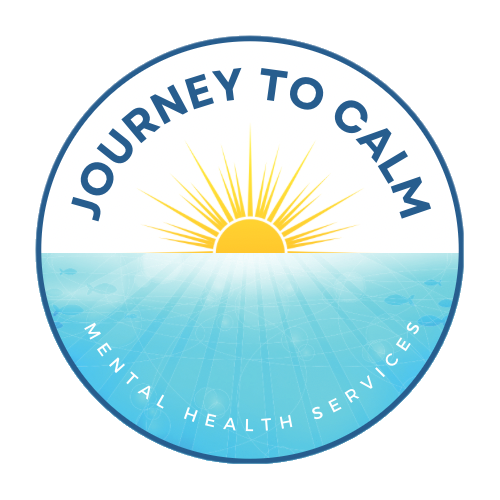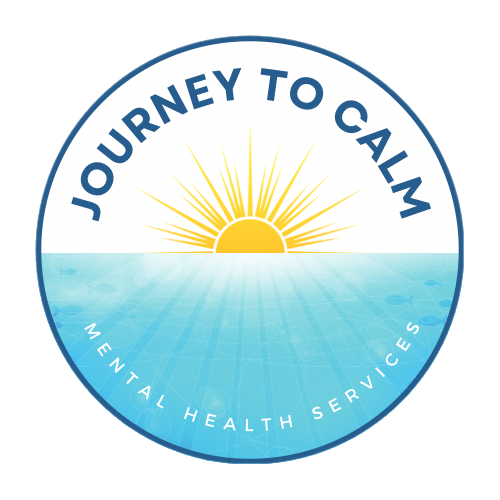Blog
Blog

How Mindfulness Can Help You With Postnatal Depression
Becoming a parent is often described as one of the most joyful experiences in life. But for many, the postpartum period is far from picture-perfect. Instead of feeling overjoyed, you might find yourself overwhelmed, anxious, or even disconnected from the very experience you thought would bring you the most happiness.
This is the reality of postnatal depression (PND), and if you’re experiencing it, you’re not alone. It’s estimated that 1 in 7 mothers and 1 in 10 fathers experience postnatal depression, yet so many struggle in silence, feeling guilty for not meeting the impossible expectation of constant joy.
If you’re in this space right now, I want you to know this: you are not broken, you are not failing, and you deserve support. And while healing from postnatal depression often requires a combination of medical care, therapy, and lifestyle changes, mindfulness can be a powerful tool to help you regain a sense of balance, presence, and self-compassion.
Understanding Postnatal Depression
Postnatal depression is more than just the “baby blues.” It’s a deep and persistent feeling of sadness, exhaustion, and overwhelm that can make even the smallest tasks feel impossible. Some common symptoms include:
Constant feelings of sadness, hopelessness, or emptiness
Irritability or anxiety that feels unmanageable
Feeling disconnected from your baby or struggling with bonding
Extreme fatigue but difficulty sleeping (even when your baby is asleep)
Loss of interest in things you once enjoyed
Feeling like you’re failing as a parent or that your baby would be better off without you
If this resonates with you, please know that you are not alone, and there is help available. Seeking support from a healthcare provider is so important. But in addition to medical care, mindfulness can offer a gentle, compassionate way to reconnect with yourself.
How Mindfulness Supports Postnatal Depression
Mindfulness is the practice of being present - fully engaging with the here and now without judgement. And while that might sound simple, when you’re in the depths of postnatal depression, it can feel impossible. The mind races with self-doubt, exhaustion takes over, and the idea of slowing down can feel like just another thing on your to-do list.
But mindfulness isn’t about forcing yourself to “feel better” or silencing your struggles. It’s about creating space for yourself, exactly as you are, without pressure or expectation. Here’s how it can help:
1. Eases Overwhelm by Grounding You in the Present
PND often brings a constant flood of anxious thoughts: Am I doing this right? Why am I feeling this way? What if I never feel better? These thoughts can spiral, making it feel like you’re drowning in them.
Mindfulness helps break that cycle by gently bringing you back to the present. It reminds you that, in this very moment, you are breathing, your heart is beating, and you are safe. You don’t need to have all the answers - just focus on this moment.
Try This: When your mind is racing, take a deep breath and name:
Five things you can see
Four things you can touch
Three things you can hear
Two things you can smell
One thing you can taste.
This simple grounding exercise can help pull you out of anxious thoughts and into the now.
2. Encourages Self-Compassion Instead of Self-Criticism
One of the hardest parts of postnatal depression is the guilt. The voice in your head might say, Why am I feeling like this? I should be happy. Other parents have it harder. But mindfulness teaches you to meet those thoughts with compassion rather than judgement.
Instead of fighting how you feel, mindfulness allows you to acknowledge it with kindness: I see that I’m struggling. I’m allowed to feel this way. I am doing my best, and that is enough.
Try This: Each time a self-critical thought arises, imagine how you would comfort a friend in your situation. What would you say to them? Now, offer those same words to yourself.
3. Helps You Bond With Your Baby, Without Pressure!
PND can make bonding with your baby feel difficult, and that’s okay. Mindfulness can help by offering simple, pressure-free ways to connect in the smallest moments.
You don’t have to force joy or feel an instant, overwhelming connection. Instead, try noticing your baby - the softness of their skin, the rhythm of their breathing, the tiny details of their face. These small moments of presence can help rebuild that connection over time. Sometimes connections aren't instant, and that is okay.
Try This: During feeding, nappy/diaper changes, or cuddles, take a moment to notice one thing about your baby. It could be the warmth of their body against yours, the way their tiny fingers curl, the sound of their breath. No pressure, just presence.
4. Helps You Navigate Exhaustion With Gentle Awareness
Sleep deprivation can make PND even harder, and while mindfulness won’t give you more sleep, it can help you navigate exhaustion with more ease. Instead of fighting against tiredness (I should have more energy! I can’t do this!), mindfulness allows you to acknowledge it with gentleness: I am tired, and that’s okay. I am still showing up. That is enough.
Try This: When exhaustion feels unbearable, place one hand on your heart and one on your belly. Take a slow breath in, and as you exhale, whisper, “I am here. I am enough.” Even in the hardest moments, this small act of self-kindness can bring comfort.
5. Creates Space for Small Moments of Joy
When you’re struggling with postnatal depression, joy can feel distant. But mindfulness isn’t about forcing happiness. It’s about making space for small, fleeting moments of light, even in the hardest days.
Maybe it’s the warmth of the sun on your face, the scent of your baby’s hair, or the quiet stillness of a cup of tea. These moments might seem small, but they matter. They remind you that even in the darkness, there are glimpses of light.
Try This: At the end of each day, write down one thing that brought you even the slightest comfort. A deep breath, a quiet moment, a kind word - anything. Over time, these moments add up, creating a gentle thread of hope.
6. Eases Health Anxiety and Constant Worry About Your Baby
It’s completely natural to worry about your baby, but postnatal depression can amplify those fears, making every little cough, cry, or restless night feel like something catastrophic. Health anxiety, whether about your baby or yourself, can become overwhelming, filling your mind with what ifs and worst-case scenarios. Mindfulness helps by grounding you in the present moment rather than getting lost in anxious thoughts about the future. It teaches you to acknowledge your worries without letting them control you.
It is a good idea to talk with somebody about this if you are suffering from health anxiety so they can help rationalise your thoughts if appropriate, but also to help you decide if medical help is needed. So often parental instincts are right if something is wrong with our baby. It's something that we shouldn't ignore, but we do also need to try to stay grounded. It can be a balancing act, but mindfulness can help you take a step back and look at the facts in that moment and help you make clearer, more rational decisions.
Try This: When anxiety takes over, practice labelling your thoughts - silently say to yourself, This is a worry. This is fear. Then take a slow, deep breath and gently bring your focus back to the present. Remind yourself that not every thought is a fact, and not every worry needs immediate action.
You Are Not Alone
If you are struggling with postnatal depression, please know that it is not your fault, and you are not alone. Mindfulness won’t erase PND overnight, but it can help you find moments of calm, self-compassion, and connection as you heal.
Most importantly, reach out for support. Whether it’s a friend, a therapist, a doctor, or a support group - help is out there, and you deserve it.
Motherhood (and fatherhood) is not about perfection. It’s about showing up, even in the messiness, even in the struggle. And even on the hardest days, you are enough. Exactly as you are. 💙


